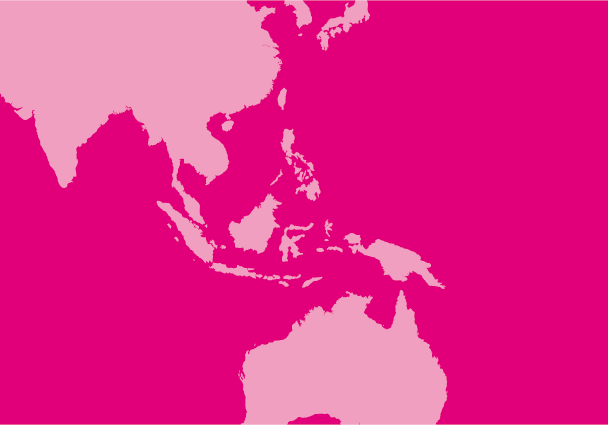The ICJ today expressed its serious concerns about the unconstitutional suspension of the Chief Justice by the Government of Pakistan.
The ICJ called on the Government to act urgently to demonstrate its commitment to the independence of judges and lawyers by releasing the Chief Justice from effective house arrest, according him full rights to defend himself in any truly independent and transparent investigation into allegations against him, and by allowing lawyers to protest peacefully.
The ICJ expressed its deep concern that on 9 March 2007 Chief Justice Iftikhar Mohammad Chaudhry, the most senior judge in Pakistan, was declared “non-functional” by President Pervez Musharraf and suspended from office, amid allegations against him by the Government of “misuse of office”.
“The suspension of the Chief Justice by the President is unprecedented and unconstitutional. It has undermined the separation of powers and threatens the independence of the judiciary and the rule of law in Pakistan”, said Nicholas Howen, the ICJ Secretary-General.
“The Supreme Judicial Council (SJC) has the sole responsibility to consider any allegations against the Chief Justice. After the Government’s precipitous move, it is even more important for any inquiry by a properly constituted SJC to be transparent, completely independent and impartial and in full compliance with the Constitution and international standards. Only if justice is done, and seen to be done, will confidence in the rule of law begin to be restored”, added Nicholas Howen.
The Government’s move came a day after Chief Justice Chaudhry gave notice to the Government of a court application requesting a commission of inquiry into the alleged enforced disappearance of 141 people in Baluchistan and other areas of Pakistan.
The disturbing developments also occurred a week after Justice Arthur Chaskalson, former Chief Justice of South Africa and ICJ President, was in Pakistan as Chair of the ICJ’s Eminent Jurist Panel on Terrorism, Counter-terrorism and Human Rights. In a public hearing in Islamabad , the Panel heard evidence about alleged enforced disappearances in Pakistan. The ICJ Panel expressly welcomed the investigation being undertaken by the Supreme Court. The ICJ today stressed that the suspension of the Chief Justice should not diminish the Supreme Court’s willingness or ability to hear this and other similar cases.
The ICJ expressed its concern that the Chief Justice is effectively being held under house arrest, together with members of his family, that he has been denied access to legal assistance and, that other visits and communications have been severely restricted.
“The most senior judge in Pakistan is being denied his basic right of liberty. The actions of the Government have sent shockwaves across the international judicial and legal community. All restrictions on the movements and communications of Chief Justice Chaudhury should be immediately removed, and he should be allowed to freely exercise his rights”, said Nicholas Howen.
The ICJ emphasised that the President does not have the constitutional power to suspend or dismiss the Chief Justice before an inquiry by the SJC has taken place. Under Article 209 of the Constitution, the President only has power to direct the SJC to inquire into allegations of misconduct and misuse of authority. It is the job of the SJC to inquire into the allegations and to report its opinion to the President. Only if the SJC recommends that he should be removed from office can the President then do so.
“The SJC now has a central role. It must be constituted properly and act, and be seen to act, independently and without interference from the Government”, said Nicholas Howen.
Before the start of the inquiry the membership of the SJC must therefore be properly constituted in compliance with the Constitution. Article 209 (3) of the Constitution provides that where the Chief Justice is the subject of an inquiry, for the purposes of the inquiry his place on the SJC is to be taken by the next most senior Judge of the Supreme Court: the ICJ understands this to be Justice Bhangwan.
The ICJ understands that the source and substance of the allegations against Chief Justice Chaudhry have not been disclosed. Under internationally recognised standards the Chief Justice and his lawyers are entitled to know the content of the allegations and their source in order to be able to respond to them.
The ICJ emphasised that Chief Justice Chaudhury was entitled to all procedural guarantees of a fair hearing. The UN Basic Principles on the Independence of the Judiciary provides that judges are entitled to a fair hearing of any complaint against them. This includes the right of Chief Justice Chaudhury to be fully informed of the allegations, the right to defend himself, and the right to be present and represented by a legal representative of his choice at the SJC inquiry.
The ICJ also expressed its concern at reports of excessive force used by police at a demonstration by lawyers outside the High Court in Lahore on 12 March 2007, protesting at the suspension of the Chief Justice. Several lawyers were reportedly beaten and injured. International human rights law recognises the right to peaceful assembly. The UN Basic Principles on the Role of Lawyers affirms this principle by emphasizing the right of lawyers, like other citizens, to freedom of expression, association and assembly. The Government should ensure that lawyers are not subject to intimidation, harassment or improper interference when performing their professional functions or their right to public protest, either in this case or others.





